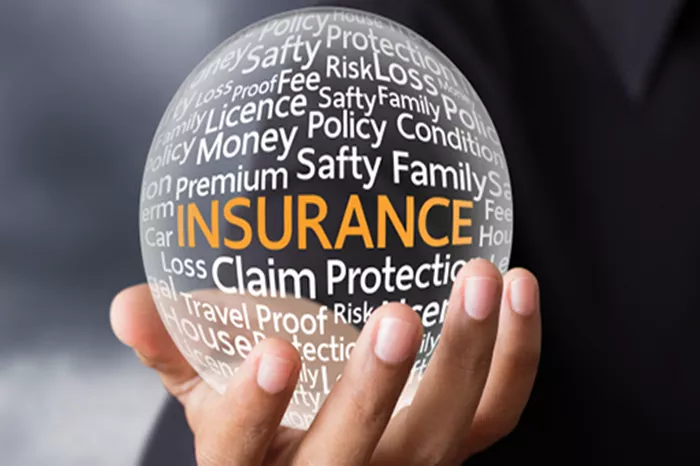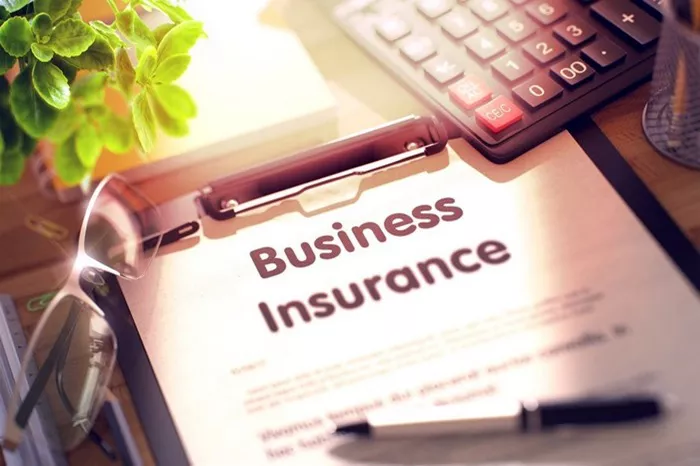Mobile homes offer a unique and often more affordable housing option in Texas. However, like any other type of residence, they are exposed to various risks, making insurance coverage essential. This article will explore the top mobile home insurance options in Texas, what they cover, and how to choose the best policy for your needs.
Understanding the Risks for Mobile Homes in Texas
Weather – Related Risks
Texas is no stranger to extreme weather conditions. Tornadoes are a significant threat, especially in the central and northern parts of the state. These powerful storms can cause severe damage to mobile homes, which may not be as structurally robust as traditional houses. High – velocity winds can lift mobile homes off their foundations, destroy roofs, and shatter windows. Hailstorms are also common in Texas. Large hailstones can dent the exterior of mobile homes, damage roofs, and break air conditioning units. Additionally, heavy rainfall can lead to flooding, particularly in low – lying areas. Mobile homes are more vulnerable to flood damage as they are often installed on relatively flat ground, and water can quickly seep in, ruining the interior, furniture, and appliances.
Theft and Vandalism
While mobile home parks can be tight – knit communities, they are not immune to theft and vandalism. Mobile homes, especially those in more isolated areas within a park or those with less – secure entry points, can be targets. Thieves may be attracted to the contents inside, such as electronics, jewelry, and other valuable items. Vandalism can range from graffiti on the exterior to damage caused to doors, windows, and other parts of the mobile home.
Key Coverage Types for Mobile Home Insurance in Texas
Dwelling Coverage
Dwelling coverage is fundamental for mobile home insurance. It protects the physical structure of your mobile home. In the event of damage from covered perils like fire, tornadoes, or hail, this coverage will pay for the repair or replacement of your home. For example, if a tornado rips through your mobile home park and demolishes your home, dwelling coverage will ensure that you can rebuild or replace it, up to the limits specified in your policy. The amount of dwelling coverage you need should be based on the cost of rebuilding your mobile home, taking into account factors such as the size, age, and the materials used in its construction.
Personal Property Coverage
Your personal belongings inside the mobile home also need protection. Personal property coverage reimburses you for the loss of furniture, clothing, electronics, and other items in case of theft, fire, or other covered events. Suppose your mobile home is burglarized, and your television, laptop, and a collection of valuable antiques are stolen. Personal property coverage will step in to cover the cost of replacing these items, usually based on their actual cash value (taking depreciation into account) or replacement cost, depending on your policy.
Liability Coverage
Liability coverage is crucial as it safeguards you if someone is injured on your property and decides to sue. For instance, if a guest slips and falls on your mobile home’s front steps and sustains a serious injury, liability coverage will pay for their medical bills, legal fees, and any damages awarded in court, up to the policy limits. It also extends to damages you or your family members cause to other people’s property. If your child accidentally throws a ball that breaks a neighbor’s window in the mobile home park, liability coverage will cover the cost of replacement.
Additional Living Expenses Coverage
If your mobile home becomes uninhabitable due to a covered peril, additional living expenses (ALE) coverage will help. This coverage pays for the cost of temporary housing, such as staying in a hotel or renting an apartment, as well as extra expenses like meals out, while your mobile home is being repaired or replaced. For example, if a fire severely damages your mobile home, ALE coverage will ensure that you have a place to stay and can maintain a normal lifestyle during the recovery process.
Top Mobile Home Insurance Providers in Texas
Texas Farm Bureau Insurance
Texas Farm Bureau Insurance offers comprehensive mobile home insurance policies. They understand the unique risks faced by mobile home owners in the state. Their dwelling coverage options are flexible, allowing you to choose a limit that accurately reflects the value of your mobile home. They also provide generous personal property coverage, with options to insure high – value items through riders. In terms of liability coverage, they offer competitive limits to protect your assets. Their claims process is known for being efficient, with local agents who are familiar with the Texas landscape and can quickly assess and process claims. For example, in the aftermath of a hailstorm in a rural area of Texas, their agents were on – site within hours to start the claims process for affected mobile home owners.
Allstate
Allstate has a strong presence in Texas and offers mobile home insurance tailored to the state’s specific needs. They offer a variety of discounts, which can significantly reduce your premium. For instance, if you have installed security features like deadbolt locks or a security system in your mobile home, you may be eligible for a discount. Their coverage includes all the standard components such as dwelling, personal property, and liability. They also provide additional benefits like identity theft protection as part of some of their policies. In the case of a theft at a mobile home park in a suburban area of Texas, Allstate was able to quickly reimburse the homeowner for the stolen items, leveraging their extensive network of partners to source replacement items at a fair price.
State Farm
State Farm is another well – known insurance provider in Texas. Their mobile home insurance policies are designed to be customizable. You can choose from different levels of dwelling coverage, and they also offer inflation – protection riders to ensure that your coverage keeps up with the rising cost of rebuilding over time. Their personal property coverage is detailed, allowing you to itemize high – value possessions for better protection. State Farm has a large network of agents across Texas, providing local support. In a situation where a mobile home was damaged by a tornado in a small town in Texas, State Farm’s local agent worked closely with the homeowner, guiding them through the claims process and helping them find temporary housing while their home was being repaired.
Factors Affecting Mobile Home Insurance Premiums in Texas
Location
The location of your mobile home plays a significant role in determining your insurance premium. If your mobile home is located in an area prone to natural disasters like tornado – alley in northern Texas or flood – prone regions near rivers and coastlines, you can expect to pay a higher premium. Areas with a higher crime rate, where the risk of theft and vandalism is greater, will also result in higher premiums. For example, a mobile home located in a high – crime neighborhood in a major city like Houston will have a higher premium compared to one in a low – crime, rural area.
Age and Condition of the Mobile Home
Older mobile homes may be more expensive to insure as they may have outdated electrical, plumbing, or structural components. These factors can increase the risk of damage from various perils. For instance, an older mobile home with an aging roof is more likely to be damaged during a hailstorm. On the other hand, a newer mobile home that has been well – maintained and meets modern building codes may be eligible for lower premiums. If you have made upgrades to your mobile home, such as installing a new, more durable roof or upgrading the electrical system, it’s important to inform your insurance provider as this may lead to a reduction in your premium.
Coverage Limits and Deductibles
The amount of coverage you choose for your dwelling, personal property, and liability will impact your premium. Higher coverage limits mean higher premiums. For example, if you opt for a higher dwelling coverage limit to fully cover the cost of rebuilding your mobile home with high – quality materials, your premium will be higher. Similarly, the deductible you choose also affects the premium. A higher deductible, which is the amount you pay out – of – pocket before your insurance coverage kicks in, will result in a lower premium. However, it’s important to choose a deductible that you can afford to pay in case of a claim.
Tips for Choosing the Best Mobile Home Insurance in Texas
Assess Your Needs
Take the time to evaluate your specific needs. Consider the value of your mobile home, the cost of replacing your personal belongings, and your potential liability exposure. If you have valuable antiques or a large amount of high – end electronics, you’ll need to ensure that your personal property coverage adequately protects these items. If you frequently have guests at your mobile home, a higher liability limit may be necessary.
Shop Around and Compare Quotes
Don’t settle for the first insurance quote you receive. Get quotes from multiple providers, including the ones mentioned above and others in the market. Compare the coverage options, premiums, and discounts offered. Use online comparison tools or work with an independent insurance agent who can provide quotes from different companies. For example, you may find that one insurer offers a lower premium for the same level of coverage as another, or that one company provides more comprehensive additional living expenses coverage.
Read the Policy Fine Print
Before purchasing a policy, carefully read the fine print. Understand what is covered, what is excluded, and the terms and conditions of the policy. Pay attention to details such as the claims process, the time it takes for the insurer to respond to a claim, and any limitations on coverage. For example, some policies may have restrictions on the types of damage covered in case of a flood or may have specific requirements for reporting a theft.
Case Studies: Mobile Home Insurance in Action in Texas
Case 1: Tornado Damage
The Johnsons lived in a mobile home in a small town in northern Texas, which was hit by a tornado. Their mobile home, insured with Texas Farm Bureau Insurance, was severely damaged. The dwelling coverage paid for the cost of demolishing the damaged parts of the home and rebuilding it. The personal property coverage reimbursed them for the loss of their furniture, clothing, and electronics. The additional living expenses coverage covered their hotel stay and meals for the two months it took to rebuild their home.
Case 2: Theft at a Mobile Home Park
Mr. Rodriguez had his mobile home insured with Allstate. While he was away on vacation, his mobile home was burglarized. His television, laptop, and a valuable coin collection were stolen. Allstate’s personal property coverage paid for the replacement of these items. The liability coverage also came into play when a neighbor, who was helping Mr. Rodriguez secure his mobile home after the break – in, slipped and fell, and Allstate covered the neighbor’s medical bills.
Case 3: Flood Damage
The Browns lived in a mobile home near a river in southern Texas. After a heavy rainstorm, the river overflowed, flooding their mobile home. Their insurance policy with State Farm, which included flood insurance as an endorsement, covered the cost of repairing the water – damaged floors, walls, and replacing ruined furniture and appliances.
Conclusion
Finding the best mobile home insurance in Texas requires careful consideration of your needs, the risks associated with your location, and the offerings of different insurance providers. By understanding the key coverage types, comparing quotes, and reading the policy details, you can select a policy that provides adequate protection for your mobile home and your assets. Whether it’s protecting against the wrath of Texas’ weather, theft, or liability claims, the right insurance policy can give you peace of mind and financial security.
Related topic:
What Should My Home Insurance Deductible Be



















